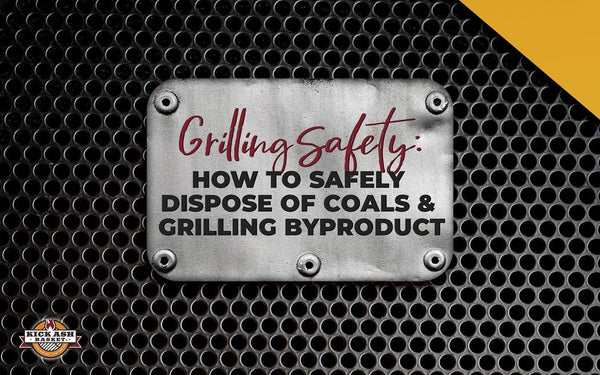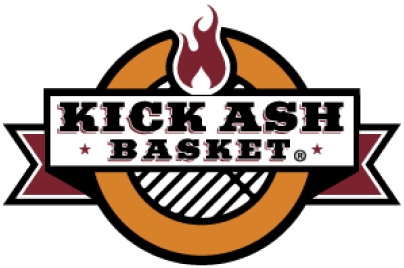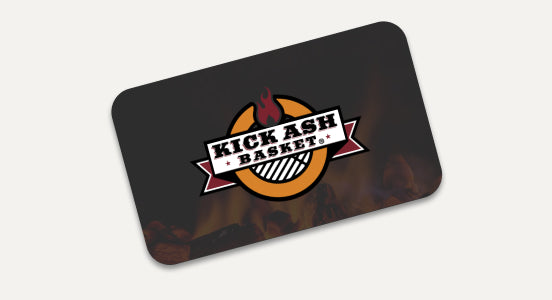
What to Do with Charcoal Ash and Other Grilling Byproducts
Updated August 2025
Properly handling charcoal and grilling byproducts is essential for both safety and effective waste management. Knowing what to do with charcoal ash and how to dispose of charcoal, whether from traditional briquettes or natural wood, helps prevent environmental harm and keeps your backyard barbecue safe and clean. Let’s dive into the best practices for safe charcoal disposal and managing grilling byproducts.
Having a great ash can practically guarantee that you can shake that ash out of your grill space safely, but we’re here to help you explore more tips and tricks for cleaning your grill!

Photo by Stacey Gabrielle Koenitz Rozells on Unsplash
Disposing of Charcoal and Ash Byproducts
Charcoal Ash Disposal: Cooling and Preparing Charcoal for Disposal
The way you handle ash disposal depends on the type of grill you have. Most importantly, let the BBQ ashes cool completely before disposing of them safely. Once cooled, wrap them in aluminum foil and toss them in the trash. If you grill often, consider using a large bucket to collect ashes over time — it saves you from making extra trips.
For longer cooks, like a slow-smoked beef brisket, you’ll need to rotate coals. Keeping things clean during that process isn’t always easy. Make sure to clean the grill after each use, but skip the stiff wire brush — it can wear down your grates faster. A juniper wood scraper is a better option. It scrapes off stuck-on food and, over time, shapes itself to fit your grates perfectly.
After the grill has cooled completely, wipe down the lid with a clean cloth. If you want a deeper clean, a food-safe cleaning spray will help tackle any leftover grime without messing with your next cook.
Ashes from Briquette Charcoal
If you’ve spent any time grilling, you know charcoal burns down to ashes. It might seem like a good idea to mix those ashes into your garden soil — after all, wood ash can be beneficial — but that’s not the case with commercial charcoal. Most briquettes contain chemicals that make them household hazardous waste, which means they’re not safe for your plants or your yard.
Commercial charcoal is typically made with wood char held together by binding agents. Some of those binders include natural ingredients like corn or potatoes, but they’re mixed with other chemicals to help the briquettes hold their shape. Additionally, many brands utilize borax to release briquettes from their molds. Once burned, these chemicals stick around in the ashes — and if you mix that into your soil, it can stunt plant growth or ruin compost.
If you’re using briquettes soaked in lighter fluid, the risk is even higher. Lighter fluid doesn’t always burn off completely, and the leftover toxins can seep into the ground, potentially harming plants and pets alike. Additionally, never use lighter fluid in a ceramic grill, as it can soak into the ceramics, leading to lingering fumes and contamination that can affect future cooks.
Natural Wood Charcoal
If cleaning up ashes after grilling feels like a chore, natural wood charcoal might be a better option. Unlike commercial briquettes filled with chemicals, natural wood charcoal is made from pure, untreated wood — making the ashes safer to reuse in your garden. Once the ashes are cool, you can mix them with water and spread them around your plants for a natural nutrient boost.
Wood ash contains magnesium, calcium, and potassium — all of which can help certain plants grow, especially if your soil could use a pH boost. It’s a simple, eco-friendly way to repurpose ashes instead of tossing them out. However, before adding ash to your garden, consider testing your soil’s pH. You can find an affordable pH test kit at a local nursery or garden center to ensure you're not raising the alkalinity too much.
That said, this only works if you’re using natural wood charcoal or another clean, chemical-free fuel. It’s not the most common gardening hack, but it can be effective if you’re careful. Just be sure not to overdo it — too much ash can throw off your soil’s balance.
How to Dispose of Charcoal Lighter Fluid
Charcoal lighter fluid falls under the category of household hazardous waste and requires special handling. Never pour lighter fluid down the drain or into the soil, as it can contaminate groundwater and harm wildlife. Instead:
-
Avoid using lighter fluid altogether – it’s unnecessary, toxic, and harmful to the environment.
-
If you have any leftovers, store them in their original container.
-
Take it to a hazardous waste facility or local collection center for safe disposal.
Grill Safety Tips
Fire Safety Precautions
For a safer grilling experience, follow these fire safety essentials:
-
Position your grill properly: Keep it at least 10 feet away from your house, deck, or overhanging branches.
-
Keep water and a fire extinguisher nearby: Be prepared for flare-ups.
-
Never leave the grill unattended: Fires can escalate quickly, especially with lighter fluid or high heat.
-
Use long-handled grill tools: Protect yourself from burns and stay a safe distance from flames. For even better protection, use the Kick Ash Basket Heat Resistant Gloves, designed to withstand temperatures up to 932°F.

Photo by Bevan Kay on Unsplash
Food Safety Essentials
Proper food handling is just as important as grill safety:
-
Keep raw meats cold until cooking: Prevent bacterial growth by refrigerating until ready to grill.
-
Cook meat to safe temperatures: For example, chicken should reach an internal temperature of 165°F.
-
Avoid defrosting at room temperature: Thaw meat in the refrigerator to keep it safe for cooking.
Sustainable Waste Disposal Practices
For those committed to reducing waste, consider exploring alternative grilling fuels like natural wood lumps or coconut shell briquettes. These options produce fewer harmful byproducts and result in safer ashes for use in the garden.
Ready to Grill Like a Pro?
Explore our full line of grilling products and resources — and remember, safely dispose of charcoal and lighter fluid for a cleaner, greener backyard barbecue experience!

